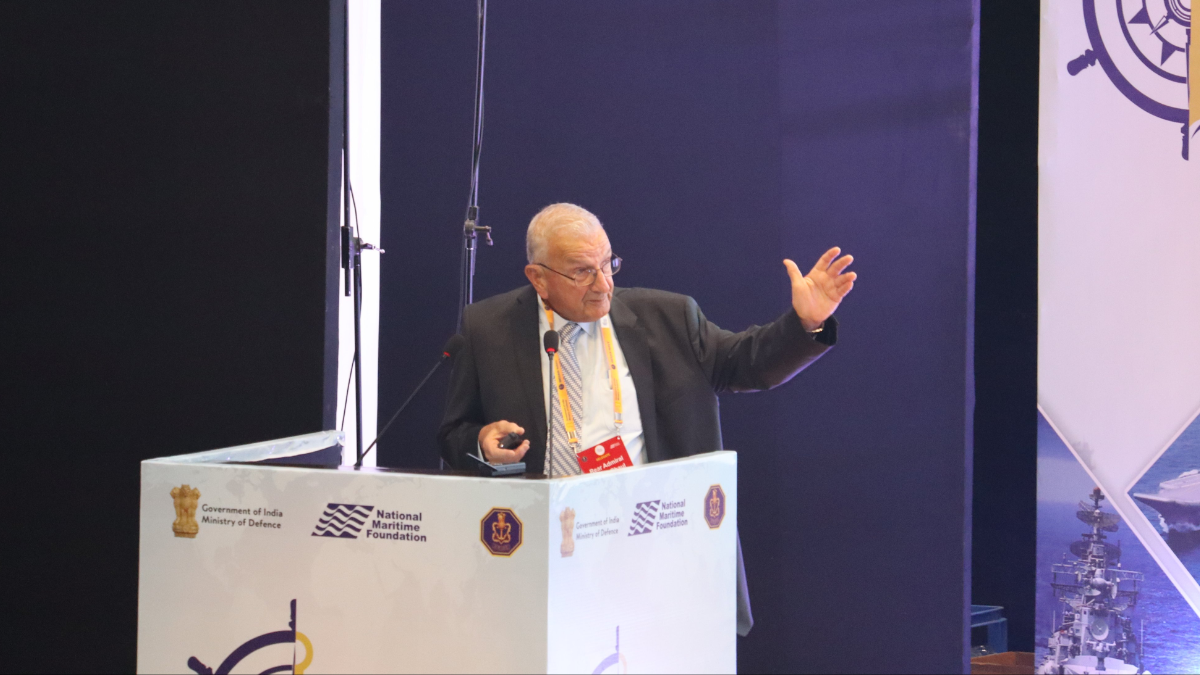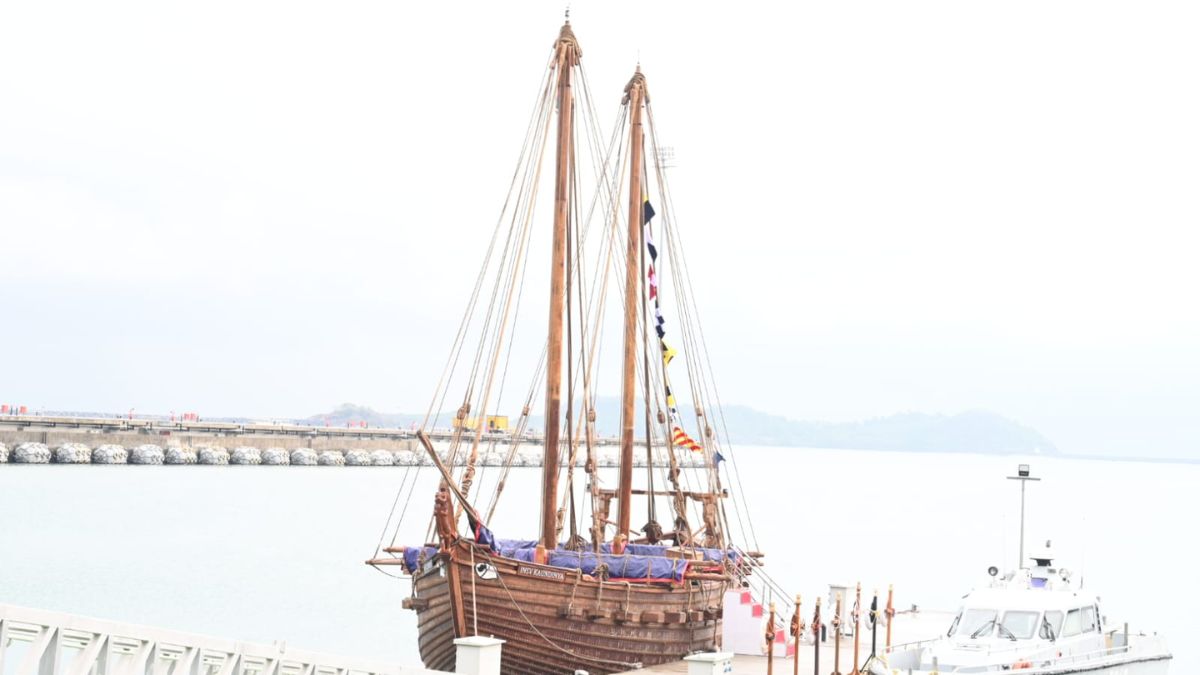IPRD 2025: How ‘Blue Economy’ Diplomacy Could Turn Eastern Mediterranean From Faultline To Lifeline

Rear Adm (Prof) Shaul Chorev, IsrNavy (Retd), INCBE, Israel, spotlighted the ‘blueing’ of Israel’s economy. Image courtesy: X.com/@nmfindia
West Asia’s violent convulsions over the past two years have redrawn the map of instability across the Eastern Mediterranean. As the guns fall silent in Gaza, the region faces a new kind of challenge — how to rebuild political trust and economic resilience amid exhaustion from decades of war and diplomacy’s diminishing returns. For some, the answer lies not on land, but at sea.
At the 7th edition of the Indo Pacific Regional Dialogue (IPRD) in New Delhi this week, Rear Admiral (Prof) Shaul Chorev (Retd) of the Israeli Navy proposed what he described as the “blueing of Israel’s economy” — a recovery model that blends maritime cooperation, renewable energy, and sustainable trade as foundations for long-term stability. His approach, articulated at the Indo-Pacific Regional Dialogue (IPRD) 2025, reframes the Mediterranean not as a theatre of confrontation but as a corridor of opportunity.
Is there scope to move from conflict to cooperation?
Speaking against the backdrop of a fragile Gaza ceasefire, Chorev argued that regional recovery will depend on the creation of shared economic systems — from undersea power cables and green shipping corridors to desalination partnerships and energy swaps.
One such initiative now under discussion between Jordan and Israel would see Amman supply 600 megawatts of solar power annually to Israel in exchange for 200 million cubic metres of desalinated water. “The Eastern Mediterranean faces the same threats — climate change, scarcity, instability,” Chorev said. “It must also find the same solutions.”
This formula of interdependence through resource exchange could mark a quiet but powerful shift from military deterrence to mutual resilience.
How could the seas, data, and diplomacy be linked together?
Israel’s maritime vision, Chorev noted, also builds on the evolving India–Middle East–Europe Corridor (IMEEC) — a logistics network connecting India’s western ports to Europe via the Arabian Gulf and the Mediterranean. The proposed Haifa–Fujairah route, backed by Indian and Emirati investments, could cut freight transit times to Europe by up to 40 per cent compared to the Suez Canal.
At the digital level, India’s upcoming MAITRI platform, developed by RITES, aims to facilitate secure data exchange between ports in India, the Gulf, and Israel. Chorev described such systems as the “middleware of maritime diplomacy,” where smoother logistics and digital transparency can build the trust that diplomacy alone has often failed to deliver.
What lessons has Israel’s blue economy experiment yielded?
Established in 2022, Israel’s National Center for Blue Economy and Innovation serves as the country’s incubator for maritime technology start-ups. Its BlueTEC Plan promotes projects in aquaculture, desalination, marine biotechnology, and offshore renewable energy — all aimed at decarbonising economic growth.
Shipping giant ZIM has begun modernising its fleet with 46 new vessels, including 28 powered by liquefied natural gas (LNG). The company has also joined the global “Move to −15° Coalition”, which targets lower carbon emissions through standardising cold-chain cargo temperatures — a quiet revolution in green logistics.
“Every green corridor or water exchange agreement,” Chorev said, “is also a peace corridor.”
Can ‘Blue economy eace’ take off despite fragility?
Even as the idea of a “Blue Economy peace” gains traction, Chorev acknowledged its fragility. Political distrust, sectarian divides, and unresolved conflicts continue to cast a long shadow over the Eastern Mediterranean. Yet, he argued, economic networks can do what diplomacy cannot — create shared interests that make peace materially beneficial.
By linking India’s digital infrastructure, the Gulf’s renewable energy ambitions, and Israel’s maritime innovation, the emerging Indo-Mediterranean nexus could become a template for sustainable cooperation in one of the world’s most unstable regions.
“Initiatives focused on the blue economy could serve as leverage points to build confidence across the Middle East,” Chorev concluded.
For a region long defined by what divides it, Israel’s new maritime calculus suggests that the path to peace might just begin beneath the waves.







